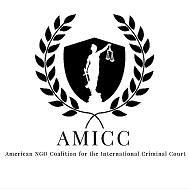 This week the media has once again focused on the ICC's involvement in Kenya. We mentioned last week there were reports indicating that Kenya was seeking aid from the African Union to defer the case until Kenya can pull out of the Rome Statute. Reports this week confirm that a high ranking team of cabinet members led by VP Kalonzo Musyoka have visited fellow African nations seeking support to petition the Security Council to defer the situation in Kenya. The deferral, as set out in Article 16 of the Rome Statute, would last for a year and could be repeated by the Security Council a number of times. This plan reportedly suffered a serious setback on Tuesday at the AU Summit in Addis Ababa when the African Union rejected Kenya's request for the AU to help block ICC prosecutions. However, China has said that it will support Kenya from interference in internal affairs. In the interim the ICC has urged Kenya to deal directly with it as opposed to rallying the African Union. Head of the Assembly of State Parties Christian Weneweser has said that if Kenya is serious about setting up national proceedings, as Musyoka and President Kibaki have claimed, then the ICC will try to support it.
This week the media has once again focused on the ICC's involvement in Kenya. We mentioned last week there were reports indicating that Kenya was seeking aid from the African Union to defer the case until Kenya can pull out of the Rome Statute. Reports this week confirm that a high ranking team of cabinet members led by VP Kalonzo Musyoka have visited fellow African nations seeking support to petition the Security Council to defer the situation in Kenya. The deferral, as set out in Article 16 of the Rome Statute, would last for a year and could be repeated by the Security Council a number of times. This plan reportedly suffered a serious setback on Tuesday at the AU Summit in Addis Ababa when the African Union rejected Kenya's request for the AU to help block ICC prosecutions. However, China has said that it will support Kenya from interference in internal affairs. In the interim the ICC has urged Kenya to deal directly with it as opposed to rallying the African Union. Head of the Assembly of State Parties Christian Weneweser has said that if Kenya is serious about setting up national proceedings, as Musyoka and President Kibaki have claimed, then the ICC will try to support it.Many members of civil society oppose the government's attempt to escape ICC prosecution. MP Martha Karua has warned that avoiding the ICC may best aid the powerful in the 2012 elections, but it will have lasting negative consequences on everyday citizens. Furthermore, the government itself appears not to be unified on the issue of a deferral. Musyoka, in his campaign across the continent, purported to speak on behalf of President Kibaki. However, Prime Minister Odinga, who has spoken out against the deferral and Kenya's pulling out of the ICC, has confirmed that he was not consulted on Musyoka's activities.
In other news, Callixte Mbarushimana, wanted for crimes in the Democratic Republic of the Congo, has been handed over by the France to the International Criminal Court so that it can begin its proceedings against him. Witness testimony continues in the Jean-Pierre Bemba trial. Witnesses claim that Bemba's soldiers raped and sodomized them, often in front of their families. Finally, reports surfaced this week that South Sudan is considering becoming a member to the ICC if it secedes. Preliminary results from the referendum indicate that secession is likely. Photo Credit: Capital FM.



